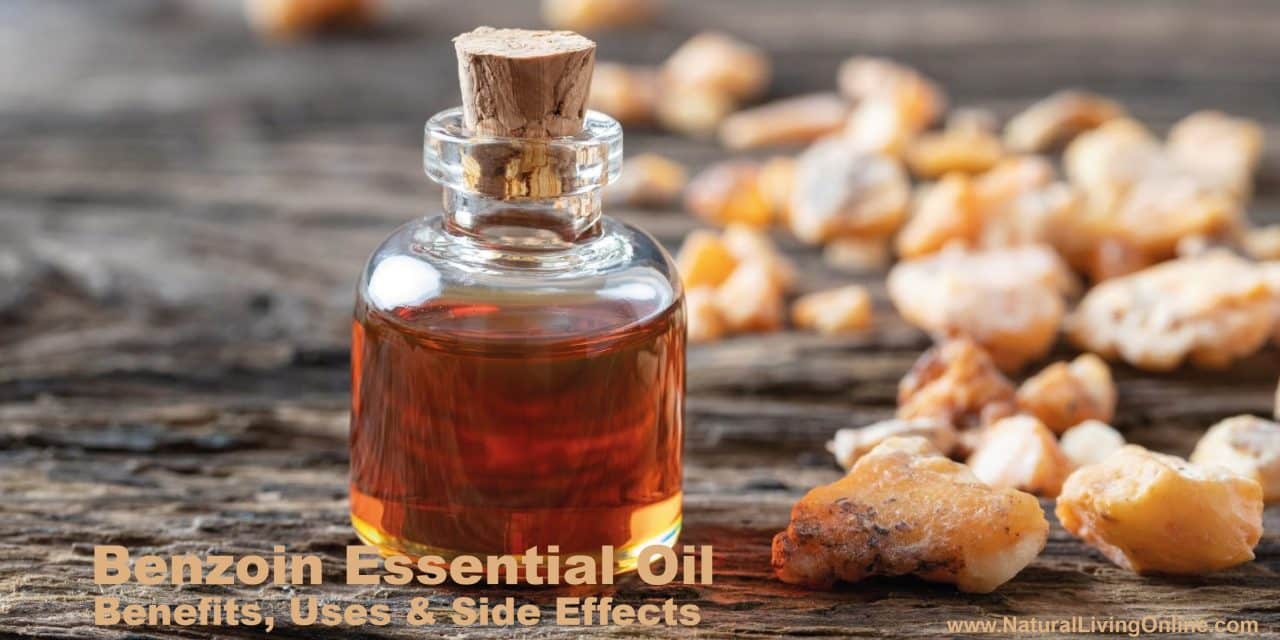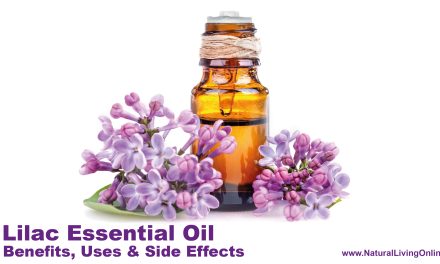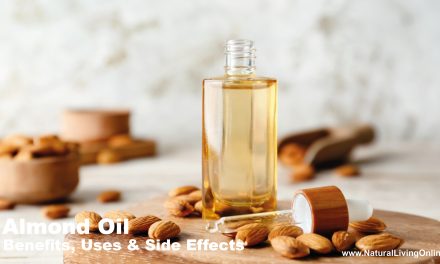Benzoin essential oil, derived from the resin of the benzoin tree (Styrax benzoin), offers a range of benefits that have made it a staple in aromatherapy and traditional medicine for centuries. Known for its ability to soothe the mind and body, this essential oil can help improve mental energy, reduce irritability, and alleviate inflammation. Its rich, sweet, and warm aroma makes it popular in perfumes and creams.
The therapeutic properties of benzoin essential oil extend beyond its fragrant appeal. It has carminative and anti-flatulent properties, aiding digestion and relieving intestinal inflammation. Additionally, its calming effect on muscles can help reduce abdominal discomfort. When applied topically, it protects the skin, improving elasticity and reducing redness, making it useful for treating cuts and bed sores.
While benzoin essential oil offers numerous benefits, it is crucial to be aware of its side effects. It is generally safe when used in foods but may pose risks when taken in medicinal amounts. Always consult with a healthcare professional before incorporating it into your routine.
Key Takeaways
- Benzoin essential oil soothes the mind and body.
- It aids digestion and protects the skin.
- Be cautious of potential side effects.
Benzoin Essential Oil Profile
Botanical Name: Styrax benzoin or Styrax tonkinensis
Family: Styracaceae
Common Names: Benzoin resin oil, Gum benzoin oil, Benzoe oil
Plant Description: Benzoin is derived from trees belonging to the genus Styrax, primarily Styrax benzoin and Styrax tonkinensis. These trees are native to Southeast Asia, including Indonesia, Laos, Thailand, and Vietnam. They grow to about 20 meters (65 feet) tall and produce a fragrant resin when the bark is cut, which is then used to extract the essential oil.
Oil Description: Benzoin essential oil is derived from the resin of the benzoin tree. It has a thick, viscous texture and ranges in color from amber to brown. The oil possesses a sweet, warm, and vanilla-like aroma with hints of spice, often described as comforting and uplifting.
Extraction Method: The oil is extracted from the resin through a process called solvent extraction, steam distillation, or CO2 extraction. The resulting product is a resinous absolute or oil.
Chemical Composition
Benzoin essential oil contains a variety of aromatic compounds and esters. The key components include:
- Benzyl benzoate (about 30-40%)
- Benzoic acid (about 15-30%)
- Vanillin (about 10-15%)
- Benzyl cinnamate (about 6-12%)
- Cinnamic acid (about 1-3%)
Properties
- Antiseptic: Helps disinfect wounds and prevent infection.
- Anti-inflammatory: Reduces inflammation and soothes irritated skin.
- Astringent: Tightens and tones the skin, reducing the appearance of pores.
- Cicatrizant: Promotes the healing of wounds and the formation of scar tissue.
- Deodorant: Neutralizes odor-causing bacteria, leaving a pleasant fragrance.
- Expectorant: Helps relieve respiratory issues by clearing mucus and easing breathing.
- Sedative: Provides a calming and relaxing effect on the mind and body.
Uses
Skin Care
- Anti-aging: Used in formulations to reduce wrinkles and fine lines due to its skin-tightening properties.
- Healing: Helps with the healing of minor cuts, wounds, and scars.
- Soothing: Reduces redness and irritation in conditions like eczema and dermatitis.
- Fragrance: Adds a warm, vanilla-like scent to creams, lotions, and perfumes.
Aromatherapy
- Relaxation: Promotes a calming atmosphere, making it useful in stress relief and anxiety management.
- Meditation: Enhances focus and provides a grounding effect during meditation.
- Sleep Aid: Helps induce sleep when used in diffusers or massage oils before bedtime.
Respiratory Care
- Expectorant: Assists in clearing congestion and mucus in the respiratory tract.
- Cough Relief: Used in chest rubs and inhalations to soothe coughs and colds.
Household Uses
- Deodorant: Used in natural deodorant formulations to neutralize odors.
- Air Freshener: Adds a pleasant scent to rooms when used in diffusers or potpourri.
Perfumery
- Fixative: Acts as a fixative in perfumes, helping to stabilize and prolong the fragrance.
Historical and Cultural Significance
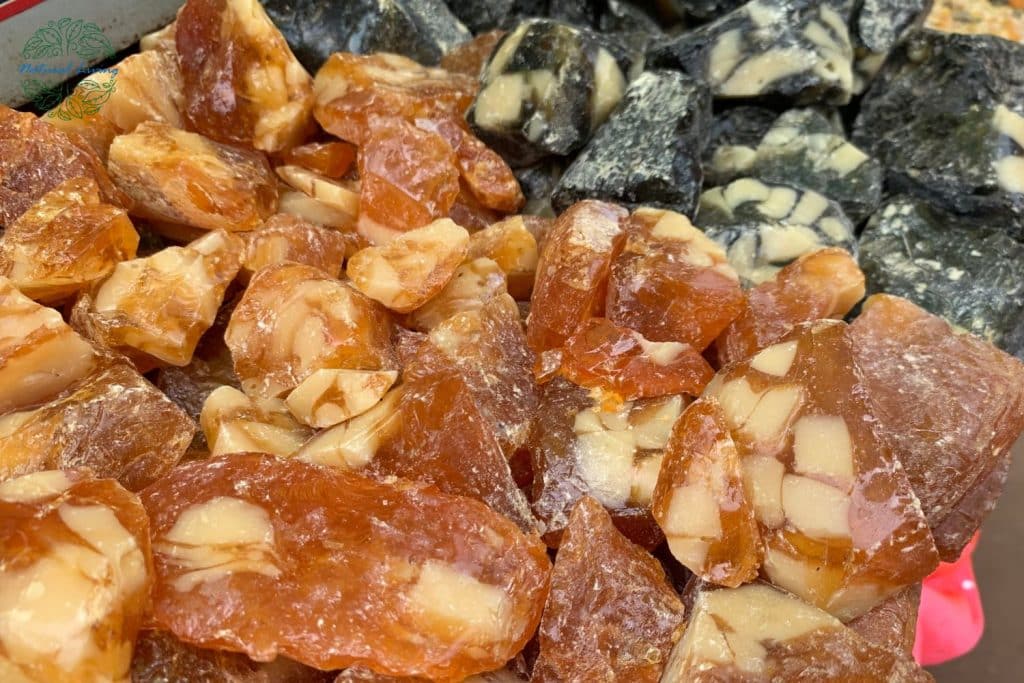
Benzoin essential oil has played important roles in various cultures, especially in medicine, religious ceremonies, and perfumery. Throughout history, it has been valued for its therapeutic and aromatic properties.
Traditional Uses in Medicine
Benzoin has been an essential component in traditional medicine across different cultures. Traditional Chinese Medicine often uses benzoin as an ingredient in remedies for respiratory conditions. The resin’s anti-inflammatory and expectorant qualities help with coughs and bronchitis.
People in Southeast Asia have long used benzoin to heal cuts and wounds due to its antiseptic properties. Southern Asians historically utilized benzoin in circumcision rituals as a healing agent. The resin’s application for digestive issues also indicates its wide therapeutic uses, such as improving digestion by relieving gases and abdominal tension.
Role in Religious Ceremonies
Benzoin has been used as incense in religious ceremonies for thousands of years. Ancient Egyptians and Greeks burned this resin during rituals to purify the air and invoke divine presence.
In modern times, it continues to be used in Catholic and Orthodox Christian rituals due to its soothing, balsamic aroma. Siam benzoin and Sumatra benzoin are prominent variations that have been burned in temples and homes to cleanse, protect, and mediate prayers. Its fragrant smoke is believed to carry prayers to the heavens and create a sacred atmosphere.
Benzoin in Perfumery
The rich, sweet scent of benzoin resin has made it a prized ingredient in perfumery. Known for its warm, vanilla-like aroma, benzoin adds depth and complexity to fragrances.
European perfumers have incorporated benzoin in famous perfumes for centuries. It acts as a fixative, helping to stabilize and preserve the scent. Benzoin’s versatile aroma blends well with other essential oils, such as sandalwood and myrrh, enhancing both floral and woody fragrances. This adaptability ensures that it remains a staple in the fragrance industry.
Therapeutic Properties and Benefits
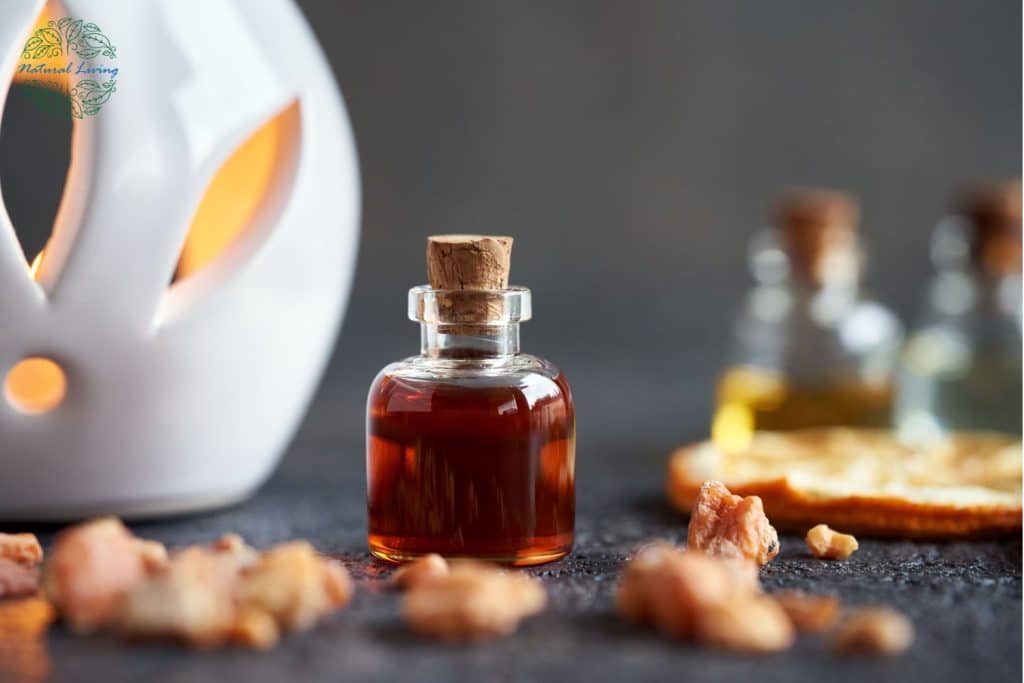
Benzoin essential oil is highly valued for its therapeutic properties, including its benefits for the respiratory system, skin care, and mental health. It is known for its anti-inflammatory, antiseptic, and sedative effects.
Respiratory Relief
Benzoin essential oil is effective in treating respiratory issues such as coughs and bronchitis. The oil’s expectorant properties help clear mucus from the respiratory tract.
Inhaling benzoin vapor can reduce congestion and ease breathing. Benzoin also has antimicrobial and antibacterial effects, helping to fight infections that could cause respiratory problems.
The soothing nature of this oil can relax the muscles around the respiratory system, which is beneficial for those suffering from asthma or chronic bronchitis.
Skin Care Applications
Benzoin essential oil is useful for protecting and healing the skin. It can be applied to cuts, wounds, and ulcers to promote healing and reduce inflammation. The oil is also an antiseptic, helping to prevent infections in damaged skin areas.
For those with chapped skin or skin conditions like eczema, benzoin can improve skin elasticity and reduce redness. Compound benzoin tincture, which includes aloe and other ingredients, is commonly used for these purposes. This combination makes the oil a versatile option for skin care.
Mental Health and Stress
Benzoin essential oil has calming and sedative effects, making it useful for reducing stress and anxiety. The soothing aroma can help alleviate symptoms of depression and promote mental relaxation.
Using benzoin in aromatherapy can enhance mental energy and reduce irritability. The scent can create a calming environment, which is beneficial for those dealing with high levels of stress or tension.
This oil also helps with sleep issues by promoting relaxation and easing the mind. It is an excellent choice for anyone looking to improve their mental well-being through natural means.
Aromatic Profile and Blending
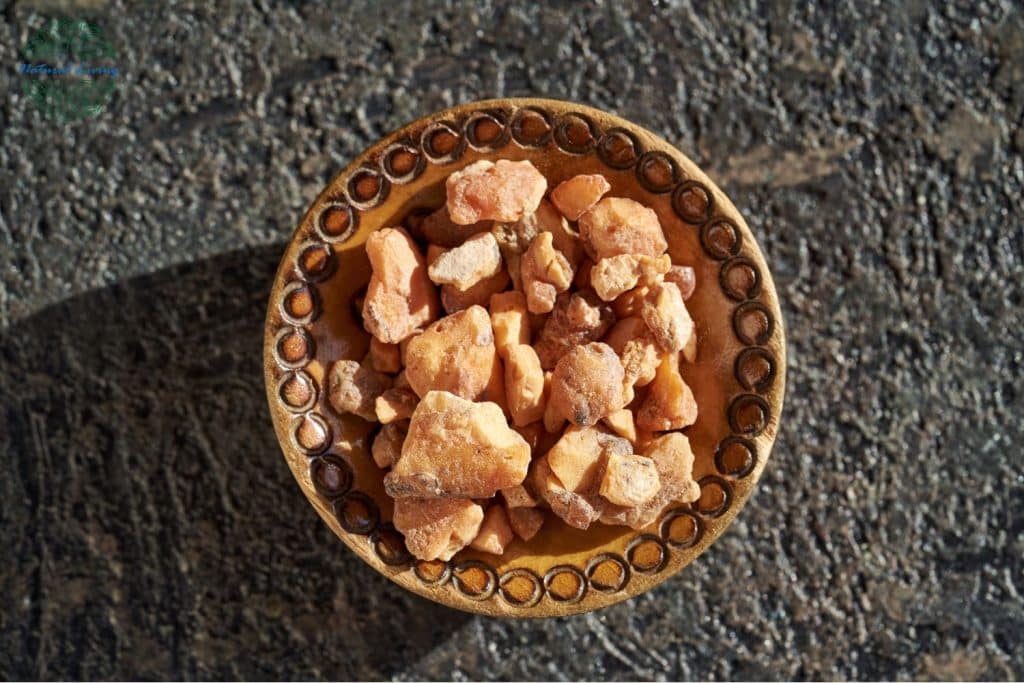
Benzoin essential oil has a rich, sweet aroma with a warm, vanilla-like character. It acts effectively as a fixative in blends, extending the scent life of perfumes or potpourri. Combining it with other essential oils like frankincense, lavender, sandalwood, and citrus oils enhances its benefits.
Characteristics of Benzoin Oil
Benzoin essential oil exudes a warm, sweet scent reminiscent of vanilla. This soothing, balsamic aroma is both calming and uplifting.
Aroma Notes:
- Rich and Sweet: Comparable to vanilla, creating a comforting sensation.
- Warm and Resinous: It captures a deeply warm character.
Due to its fixative properties, it helps prolong the lifespan of a fragrance. It’s commonly used in perfumes, potpourri, and various aromatherapy applications. The oil is derived from the resin of Styrax species, adding to its deep, balsamic qualities.
Blending with Other Essential Oils
Benzoin essential oil blends well with several other essential oils. This enhances both the scent and the therapeutic benefits of the blends.
Ideal Blending Partners:
- Frankincense: Adds depth and enhances calming effects.
- Lavender: Combines to enhance relaxation and soothe the mind.
- Sandalwood: Creates a rich, grounding blend.
- Citrus Oils (Lemon, Orange, Bergamot): Provides a refreshing and uplifting boost.
- Rose and Myrrh: Enhances the luxurious and healing properties.
These combinations find uses in aromatherapy treatments, perfumes, creams, and balms, making the overall experience more enriching and effective.
The balanced, versatile blending capability makes benzoin a valuable addition to many aromatherapy practices and personal care products.
Practical Uses and Applications
Benzoin essential oil is versatile, offering benefits for both household and personal care, as well as external medicinal applications. It helps with skin conditions, acts as a deodorant, and serves as a disinfectant.
Household and Personal Care
Benzoin essential oil can be used in several ways around the home and for personal hygiene. When added to massage oils and lotions, it enhances skin softness and elasticity. Its sweet, vanilla-like aroma makes it an effective deodorant when mixed with carrier oils or used in homemade creams.
Add a few drops of benzoin oil to potpourri or air fresheners to keep rooms smelling pleasant for longer periods. Additionally, its astringent properties help tighten skin tissues and reduce the appearance of pores. This makes it a useful ingredient in facial masks or toners aimed at reducing oiliness and improving skin texture.
External Medicinal Applications
In external medicinal applications, benzoin essential oil is known for its wound healing and anti-inflammatory properties. It is effective when applied in a balm to treat skin conditions such as small cuts, burns, or ulcers.
It acts as a disinfectant, helping to prevent infections in minor wounds by creating a barrier against bacteria and fungi. For massage, mixing benzoin oil with a carrier oil can improve circulation and provide relief from sore muscles. Its calming scent also reduces irritability and mental fatigue, making it a popular choice for aromatherapy sessions.
Safety and Side Effects
Benzoin essential oil is generally safe to use, but certain precautions must be taken. Understanding specific health concerns and contraindications can prevent adverse effects.
General Precautions
Benzoin essential oil can cause skin irritation or allergic reactions in some people. It is important to conduct a patch test on a small skin area before using it extensively. If redness, itching, or swelling occurs, discontinue use immediately.
Pregnancy and breastfeeding women should avoid using benzoin essential oil unless advised by a healthcare professional. The effects on fetuses or nursing infants are not well-studied. Additionally, use caution when applying around children, as their skin is more sensitive. Avoid direct inhalation for young children to prevent respiratory issues.
Specific Concerns and Contraindications
People with certain medical conditions should be cautious when using benzoin essential oil. Those with asthma or other respiratory issues might find that its strong aroma triggers symptoms. Always consult a healthcare professional before use if you have respiratory conditions.
Although benzoin essential oil is often applied to the skin, it is not meant to be ingested. Ingesting this oil could lead to toxicity and severe health issues. If accidentally swallowed, seek immediate medical attention.
Individuals with allergies to tree resins or similar substances might also react to benzoin essential oil. Consistent monitoring during initial use is necessary to ensure it does not cause significant health problems.
Frequently Asked Questions
What are the common skincare benefits of using benzoin essential oil?
Benzoin essential oil is praised for its antiseptic properties. It helps treat bed sores, small cuts, wounds, and skin ulcers. Its germicidal and anti-inflammatory effects make it effective for reducing skin inflammation and aiding the healing process.
How can benzoin essential oil be incorporated into spiritual practices?
Benzoin essential oil is known for its warm, sweet aroma. It is calming and relaxing, making it useful for meditation and creating a peaceful environment. Its uplifting scent helps instill a sense of optimism and well-being, often used in aromatherapy and spiritual rituals.
What are the potential side effects associated with the use of benzoin essential oil?
While generally safe, benzoin essential oil may cause skin irritation or allergic reactions in some people. It is important to perform a patch test before using it extensively. Avoid using it on broken skin without proper dilution.
In what ways is benzoin utilized for medicinal purposes?
Benzoin essential oil has carminative properties, helping to relieve gas and bloating. It can also be applied to ulcers, cracked skin, and inflammation due to injuries. Its antiseptic qualities make it a good option for treating small wounds and other skin issues.
Can benzoin essential oil provide anti-inflammatory benefits?
Yes, benzoin essential oil has notable anti-inflammatory benefits. It can help reduce inflammation from injuries and soothe the affected area. This makes it useful for treating conditions such as bed sores and other skin irritations.
What are the recommended uses of tincture benzoin in inhalation therapy?
Tincture benzoin can be used in inhalation therapy to relieve respiratory issues. Adding a few drops to hot water and inhaling the steam can help clear congestion and soothe sore throats. This practice takes advantage of its benefits for respiratory health, making it easier to breathe when dealing with colds or respiratory infections.
References:
This website does not provide medical advice.
All information provided on this website, and on associated social media networks, including but not limited to texts, images, and numbers are for general information purpose only. It is not intended as medical advice and it does not include all possible precautions, side effects, or interactions that may occur. Neither NaturalLivingOnline.com nor its author/founder take responsibility for how you use this information. Statements contained on NaturalLivingOnline.com have not been evaluated by the FDA. You should conduct thorough research via multiple sources and consult your physician or qualified doctor before using any essential oil or herbal remedy. Information on NaturalLivingOnline.com must not be relied upon for medical, legal, financial or other decisions.

